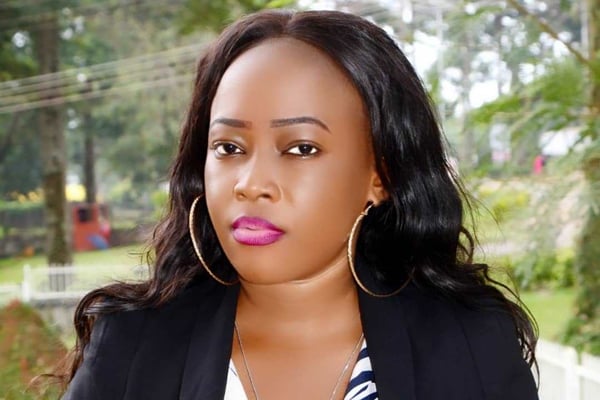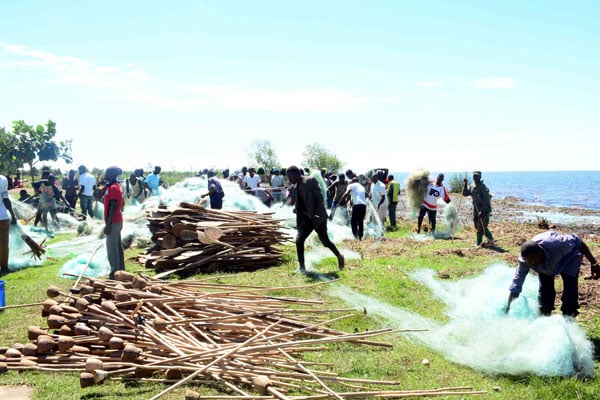Fishing has gained momentum on Lake Kyoga, says Minister

A fisherman carries Nile Perch at Kagwara Landing site in Serere District. Photo | Eve Muganga
What you need to know:
- He also added that there’s still a need to work on depth dredging, and control of invasive aquatic weeds as the key interventions required to restore Lake Kyoga in order to increase the fish production.
The State Minister for Fisheries, Ms Hellen Adoa, has revealed that fishing has gained momentum on Lake Kyoga.
“Before the government suspended fishing activities on Lake Kyoga, there was a decrease in fish stock due to illegalities but since the ban was lifted, I’m impressed that now the fish stock has increased because fishermen no longer go for immature fish, and they are using proper fishing gears that were recommended by the government,” she said during the Lake Kyoga Integrated Management Organisation (LAKIMO) sensitisation meeting held at Soroti Hotel in Soroti District.
Mr Geoffrey Dheyongera, the Principal Fisheries Officer said: "Before the ban, about 60,000 tonnes were being produced from Lake Kyoga and its satellite lakes annually and after the government lifting the ban, Fish stock on Lake Kyoga has increased by 30 percent which brings it to 78,000 tonnes.”
He also added that there’s still a need to work on depth dredging, and control of invasive aquatic weeds as the key interventions required to restore Lake Kyoga in order to increase the fish production.
Lt (Rtd) Samuel Kigula, the Chairperson LAKIMO who also doubles as the Nakasongola District Chairperson said: “Amidst challenges, we are here to reaffirm our commitment to the restoration of the Lake Kyoga fisheries and its sustainable utilisation since the objectives of LAKIMO is to contribute to poverty eradication and the social-economic development of the Lake Kyoga communities through the integrated and sustainable management of the Lake Kyoga natural resources.”
The Project leader GIZ fisheries program, Mr Adolf Gerstl noted: “We have been backing MAAIF through the directorate of fisheries resources, on re-establishing co-management structures and LAKIMO is one of them so when they asked us to help and revive them, we saw it fits perfectly into our program which we support and this was easy for us to come in to help LAKIMO.”
Gerstl further stated that they want to see the fisheries sector in Uganda reach a stage that is managed sustainably.





